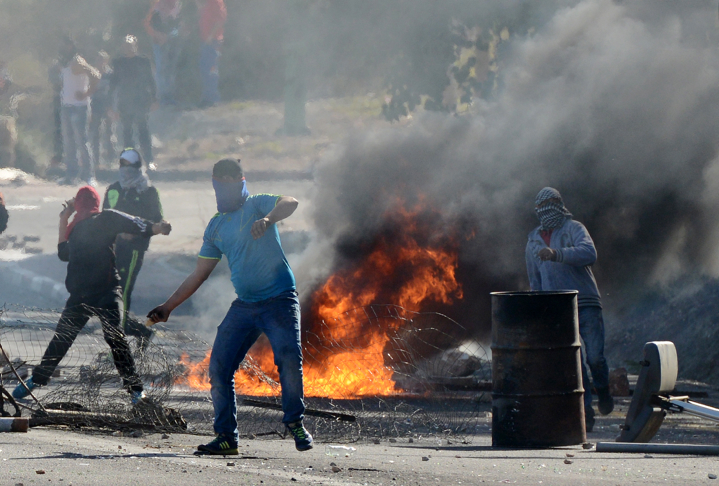Mida congratulates Binyamin Netanyahu on winning the 2015 elections. Here’s how he can make the country freer, safer and with more accountable government.
The 2015 election results give Binyamin Netanyahu and the national camp a unique opportunity to make a lasting impact on the country’s future · For the first time, Netanyahu will be able to for a stable center-right coalition which will enable him to enact long term changes · Mida‘s recommendations for the Fourth Netanyahu Government

Beyond all the usual post-election chatter, one thing is clear: Binyamin Netanyahu can now form a stable center-right coalition capable of truly governing the country, instead of just muddling through and surviving. The man and the hour have met, and after years of unstable governments, Binyamin Netanyahu has a golden opportunity to set the national agenda.
Over the past few months, Mida published its own proposed “platform” for a future elected government. With the election results now in, we take this opportunity to focus on three key policy areas in which the Fourth Netanyahu Government can make an appreciable difference: conducting a growth-oriented economic policy, restoring sovereignty and internal security to the country’s periphery, and strengthening the governing capacity of the Knesset and government.
A Growth Economy
One of the government’s biggest challenges is increasing Israel’s GDP. Natural gas excepted, Israel lacks large reserves of natural resources, and its economy is primarily dependent on entrepreneurship. The more GDP grows and incomes increase, the more all citizens of the country benefit—at all socioeconomic levels.
According to data provided by the Agency for Small and Medium Businesses of Israel’s Economy Ministry, 460,000 businesses operate in Israel today. These employ almost 2 million people and are responsible for a large chunk of our GNP. But although the business sector is enjoying momentum these days—there was a rise in business openings in 2013—Israel is still far from being an entrepreneur’s paradise.
According to the World Bank Group’s “Doing Business” Rankings for 2015, Israel is ranked 40th in ease of doing so, two spots lower than last year. Israel’s grades on the various specific rankings emphasize the problem—53rd in setting up businesses, 109th in getting electrical services, 111th in enforcement of contracts, 121st in getting building permits, and 135th (!) in registering property. It’s worth remembering that we’ve gone down in all these fields, even though the rankings include Israel’s hi-tech sector in its calculations.
In addition, Israel suffers from a system which gives preference to large corporations: in comparison to the OECD, big businesses employ more people in total than the smaller ones, even though the latter are slightly more responsible for Israeli GDP. Medium-sized businesses also suffer from relatively low productivity. Professional opinions solicited by the Economy Ministry point to a series of problems in terms of financing, bureaucracy, inaccessible government programs, and inadequate technological and economic knowledge. Businesses themselves complain of “unfair competition, bureaucratic burdens, and barriers in the fields of marketing, bank credit and professional employees.”
So the Netanyahu Government should put helping the business sector at the top of its agenda for the next few years. The barber, the welder, the music store owner and the aluminum plant founder should find it as easy to set up shop and make a go at it as the hi-tech start-up guy. Entrepreneurship, risk, production and trade are what Israel needs right now. Put differently: Much less public sector and government growth, much more business growth. We need to burn through the red tape, break down convoluted licensing barriers, eliminate labour laws that make it increasingly difficult to actually hire workers and wage war on a bureaucratic system that makes it next to impossible for business owners to register property, build a structure or get electricity.
It won’t be easy. Many powerful people have an interest in preserving the present system—especially the big businesses which can afford to comply with the burdensome regulation which protects them from competition by smaller upstarts. Another powerful lobby vested in the current system is the “social justice” lobby, which believes in expanding government investment and employment to close gaps and all sorts of other populist boondoggles.
Moshe Kahlon, the leading candidate for the Finance Ministry, has the right ideas, and the Prime Minister should give him his full support. Netanyahu has weathered populist pressures before to heal the economy, and he should do so today.

Internal Security and Sovereignty
Israel has suffered a severe crisis of law enforcement in the past several years. Whole areas of the country are lawless, with the criminal element doing as it pleases without serious fear of punishment. Entire areas of the Negev, Galilee and the Triangle are effectively without law enforcement. There is underenforcement of construction laws, taxes are not being collected and worst of all—there is no effective protection of citizens’ lives and property.
According to surveys, the Israeli Police just isn’t providing the goods: there has been a dramatic drop in recent years of citizens willing to give the police high marks: from 63% in 2002 to 35% in 2012. The number of Jewish citizens who have faith in the police has gone down from an already low number of 36% in 2003 to 21% in 2013.
Crime is particularly severe in the Arab community: according to a publication of the Knesset Research and Information Center from 2014, 49% of criminal prisoners in Israel are Arabs, who are about 20% of the overall population. These are mostly serious crimes we’re dealing with: 49% of those convicted of murder, 58% of those convicted of attempted murder, and 45% of those convicted of assault and battery are Arabs.
Arab crime has become a strategic problem, as it is part and parcel of a general abandonment of Israeli sovereignty in the country’s periphery. The biggest sign of this abandonment is the rampant illegal construction in both the Negev and the Galilee. We don’t have exact data on the extent of this phenomenon, but according to general estimates of government authorities there are some 70,000 illegal structures in the north, and 3,000 new illegal construction projects are started every year. The situation is even worse in the Negev: some 85,000 illegal structures are spread out over 20,000 dunams. Here, 1,500 illegal construction projects are added every year.
The response to all this is simple: a significant increase in police manpower. The facts speak for themselves: the establishment of a special police force against illegal construction in the Negev, alongside an effective policy of civilian prosecution of the same, led to a significant rise in demolitions of such structures in 2013. 697 illegal structures were destroyed in 2013 as opposed to just 369 in 2012, and no less than 376 of the structures destroyed in 2013 were demolished by the owners themselves.
But the Israeli Police as it stands today, part of which is dedicated to deal with terrorism, simply doesn’t have nearly enough manpower and resources to effectively enforce the law throughout the country. Israel may have only a lower-than-OECD average police to population ratio (0.317 officers for every 1,000 citizens), but given the emergencies and range of threats Israel faces, comparisons to the relatively peaceful European countries tell us nothing.
When one focuses at the local level, the lack of resources comes into sharp focus: the Ashdod police station has only 164 policemen, of whom 70 are patrolmen, to police a city of half a million residents. Rishon Letzion, a city of 350,000 residents, has only 70 patrolmen and six police patrol cars. Holon, a city of 200,000 people, doesn’t even have its own police station.
The budget of the Israeli Police is less than 10 billion NIS, or about 2.9% of the State budget. The budget for the entire Ministry of Internal Security, including prisons and firefighters, is about 12 billion NIS, or 3.9% of the State budget. The government must significantly increase the police budget and manpower and give it the legal and organizational tools it needs to succeed. This means more police stations, more cars and most importantly—more uniforms on the streets. This is the basis for improving law and order for all of Israel’s citizens, and it’s hard to see how we can change things without it.

Effective Democratic Governance
Another strategic challenge facing the Fourth Netanyahu Government is the very structure of the government, especially the disproportionate power of the Israeli Supreme Court. In an ongoing and deliberate process, the Supreme Court under former Court President Aharon Barak and his successors has taken over fields which were traditionally the exclusive purview of the Knesset and the government, including clearly political matters and issues shaping the character, identity, borders, economy and security of the State of Israel.
The Supreme Court’s power over the legislative and executive branch is without precedent in the democratic world. There is hardly an issue in which the Supreme Court does not see itself fit to intervene: subsidies in the milk market, subsidizing of day care for freelancing working mothers, the installation of telephone lines, the operation of public transportation, the awarding of state prizes, issues of national identity, issues of security including appeals against tactical military maneuvers, the route of the Separation Barrier, and negotiations over the release of terrorists.
The Supreme Court has even dealt with the question of the fitness of senior government officials to serve in office, even ordering the government (against the law) to fire a minister and his deputy—Deri and Pinhasi—who were indicted but not yet convicted of accepting bribes, and three elected mayors, who were also not convicted. As far as the Supreme Court is concerned, there are no limits to its power or reach, except for cases where it decides to do us the favor of restraining itself as an act of chivalry. Just recently, the Supreme Court revoked a second version of the law meant to deal with illegal infiltrators from Africa, and it is now reviewing a third iteration of that law.
There’s much we can do about this problem, including the changing of Basic Laws, the limiting of appeals capable of revoking laws and adopting an orderly constitution. But one thing is clear: the government needs to roll up its sleeves, show democratic responsibility and restore the appropriate balance among the three branches of government.
In addition, the present system of judicial appointments needs changing: five out of the nine members of the Judicial Selection Committee are Supreme Court Judges and lawyers who usually present a united front on appointments. This situation, in which judges effectively appoint themselves and the legislature, government and public have little to no say in the matter is unprecedented throughout the democratic world. The solution in this case is quite simple: changing the composition of the Committee and making it more transparent would do a great deal towards making the Courts more representative of the public.
Alongside the Court’s power grab, another instance of the takeover of power by unelected legal officials is the Attorney General. The Israeli attorney General has far greater power in Israel compared to other western countries. Dr. Aviad Bakshi conducted a broad study comparing the Israeli Attorney General to his counterparts in the United States, Britain, Germany and Canada, and he found that the Israeli Attorney General has an exceptional amount of power compared to his peers.
If that was not enough, the Attorney General has a significant force multiplier: the legal advisors of the individual government ministries. Instead of simply advising ministers and ministry officials, these unelected advisors have been instructed “to act to maintain and strengthen the rule of law” (by their lights, of course), and their opinions do not leave any discretion to government ministers. More than this, the decisions are considered legally binding, “unless otherwise ruled in an authorized court.” Indeed, any conflict between elected representatives and clerks meant to be subordinate to them, are adjudicated by these self-same advisors.
The Attorney General is also deeply involved in Knesset legislation through the Counseling and Legislation Department under his authority. Like the Supreme Court, the Department involves itself in almost every field of government business: from reforms of the Broadcasting Authority to control of the natural gas deposits, the bailout of Israel’s Channel 10 and even a constitutional review of the holding center for infiltrators. “We’re probably the most influential government units in Israel without the public knowing of the influence we have,” a senior legal official noted with pride in an interview, “No less than the State Attorney’s office and maybe even more.” As Deputy Attorney General Avi Licht stated, “Sometimes we sit next to the driver. In some cases we are the driver.”
Here too, the Fourth Netanyahu Government needs to fight tooth and nail to restore rightful authority to the people’s democratic representatives in the Knesset and the government. It is not the business of the Attorney General or ministry legal advisors to unilaterally establish policy. Government ministries and the Knesset should be free to independently engage the services of legal advisors who will help them work and defend them in court, rather than be dependent on hostile bureaucrats on a power trip.
The Fourth Netanyahu Government has a chance to fundamentally reshape the country, making it freer, more prosperous, safer and with a regime more accountable to its people. We wish it well, and hope it will take our suggestions into account.
English translation by Avi Woolf.
To receive updates on new articles in English, join Mida on Facebook or Twitter or join our mailing list.



